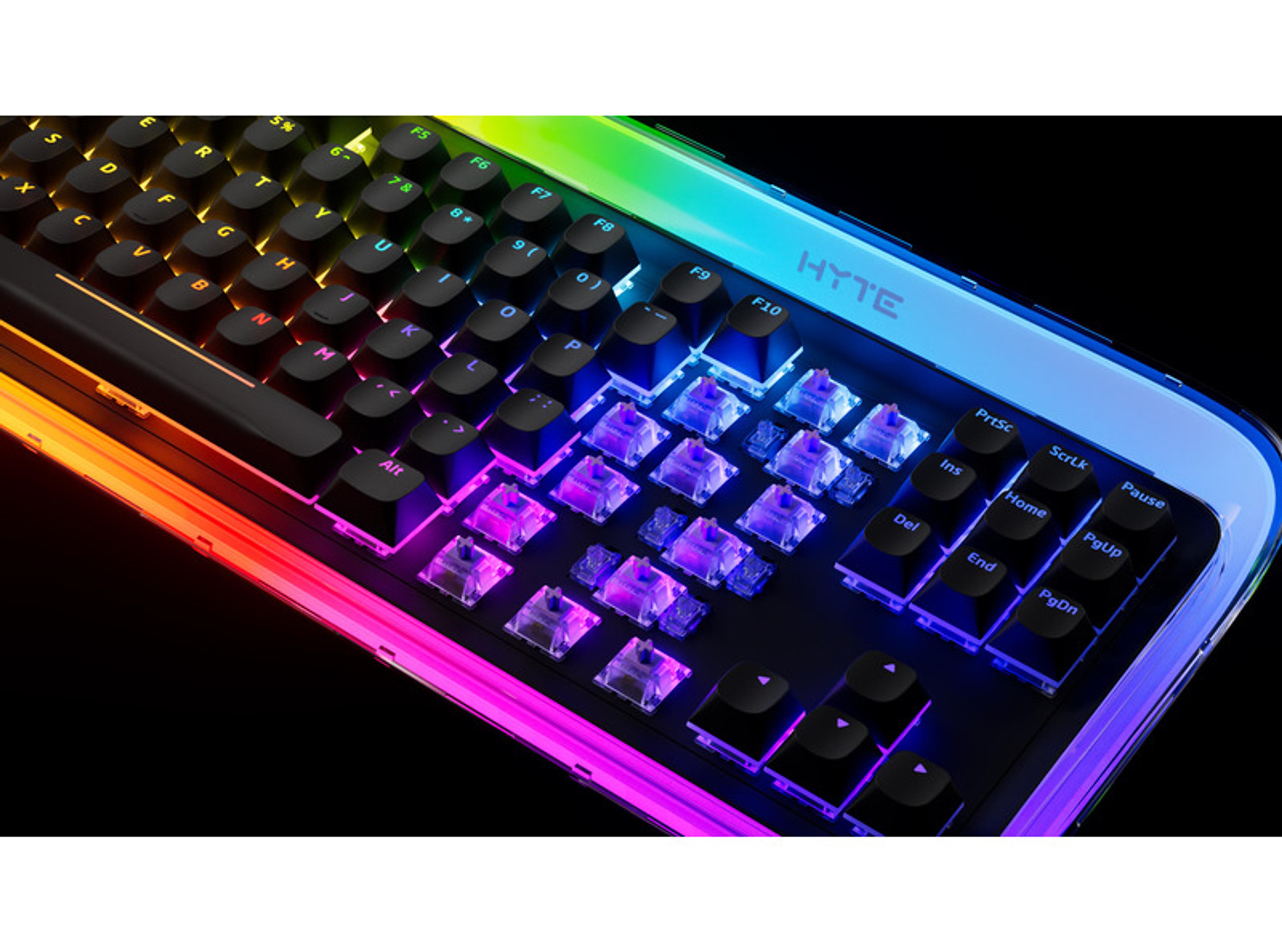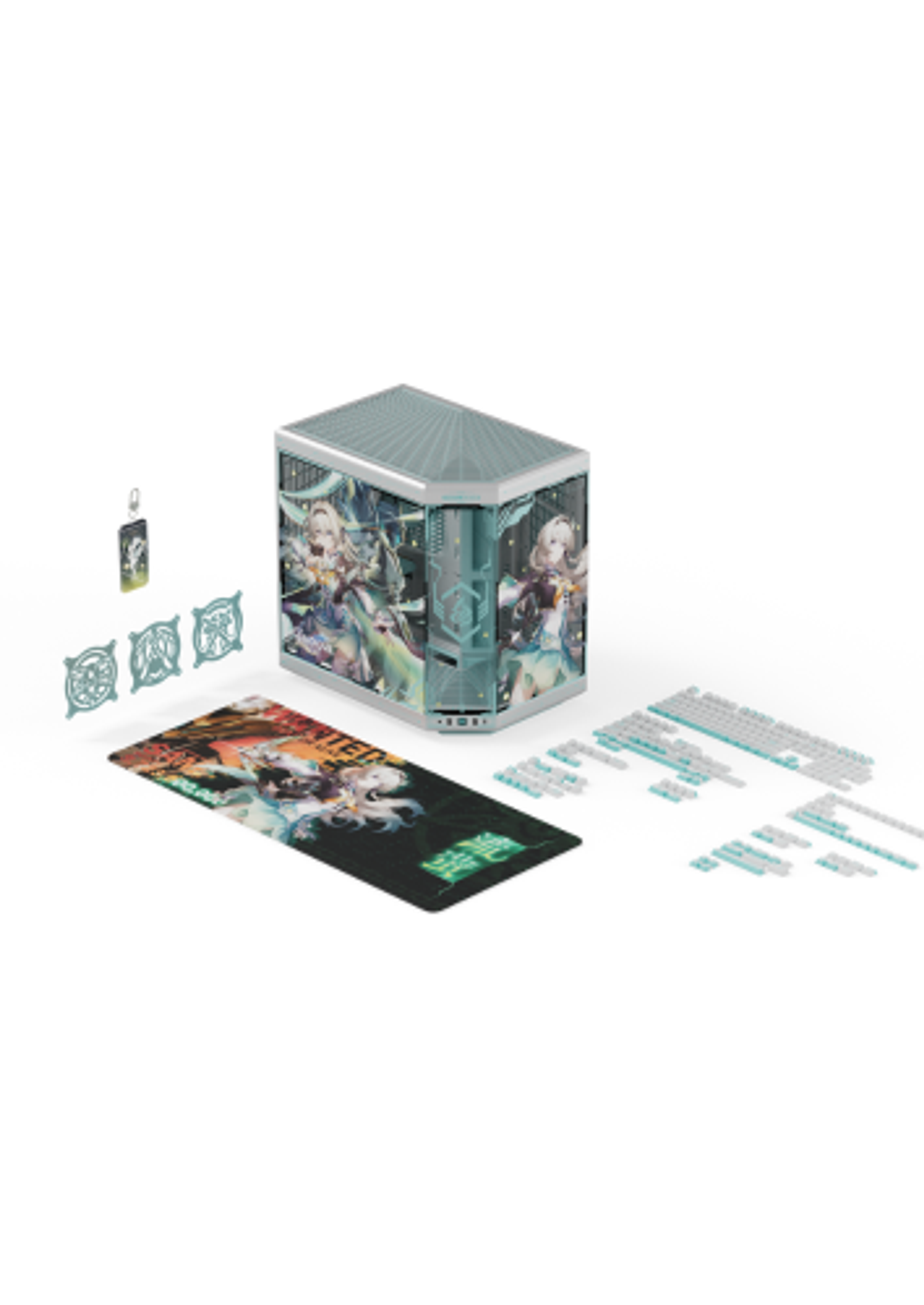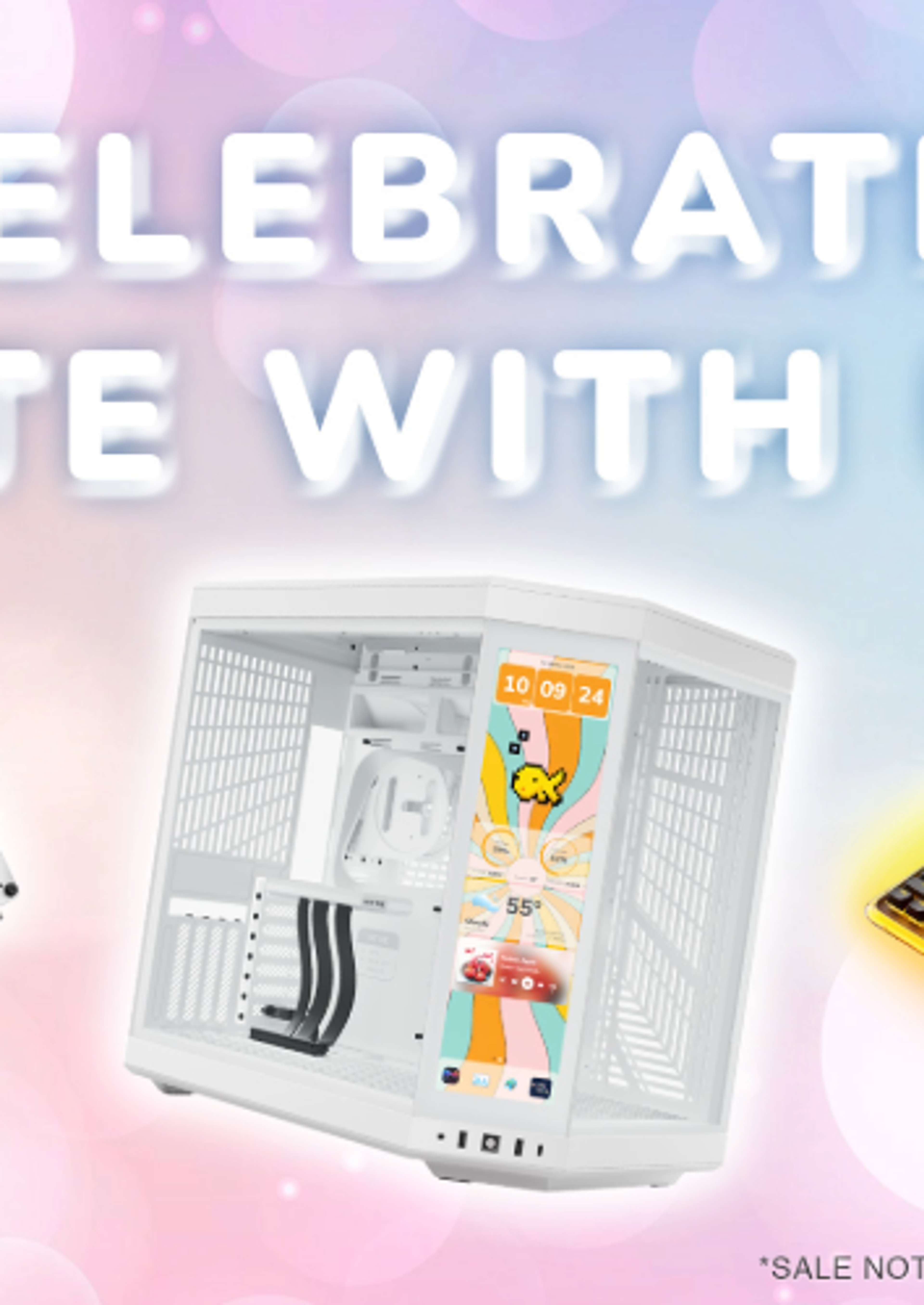
Keyboard Sizes & Layouts Explained
Keyboards are an essential component of any functioning PC while also being a fun, aesthetically pleasing accessory to any gaming setup. Picking a great mechanical keyboard is not only about looks, though. Keyboard sizes and layouts impact the functionality of your setup alongside its aesthetics.
This guide provides the basics of what to consider when deciding on the best keyboard sizes and layouts for your gaming keyboard.
The Different Kinds of Keyboard Layouts
The physical size of a keyboard is determined by the number of keys it has. Keyboard sizes are typically measured using percentages, with a 100% keyboard referring to a full-sized model containing 104 to 108 keys. Essentially, as the number of keys decreases, so does the keyboard percents, resulting in more compact layouts.
Full-Sized Keyboard Layouts (100%)
A full-sized or 100% keyboard is one of the most common keyboard layouts, especially in office settings. These keyboard layouts have four main sections, including alphanumeric keys, function keys, navigation keys, and a numeric keypad, making them versatile for office tasks, data entry, and gaming.
Full-sized keyboards offer all standard keys and functions, but since they are larger, they occupy more desk space, potentially limiting mouse movement and overall workspace organization. Their size and weight also make them less portable.
Ideal for office professionals, data entry tasks, and accounting purposes, full-sized keyboards cater to typing-intensive activities and permanent workstations with plenty of workspace.
Tenkeyless (TKL) Keyboard Layouts (80%)
Tenkeyless (TKL) keyboards, or 80%, are compact yet functional alternative keyboard layouts to a full-sized one by removing the numeric keypad. TKL keyboard sizes balance functionality and space-saving, but while TKL as a class is standard, layouts can still vary, especially in the mid-cluster and arrow keys. This flexibility makes it popular among users looking to maximize desk space without sacrificing usability.
Regarding gaming keyboard sizes, the TKL keyboard has more space for mouse movement to give gamers their best performance. Sacrificing the numpad means gamers can enjoy a more streamlined setup without compromising essential keyboard keys.
Compact Keyboard Layouts (75%)
Many computer users may already be familiar with 75% keyboard layouts as they are commonly found on laptops. With 84 keys, it streamlines the function keys while retaining commonly used directional and F keys for smaller keyboard sizes to account for portability.
The 75% keyboard is for users wanting portability without sacrificing functionality. Omitting the number pad and some navigation keys like Insert, PrtScn, Scroll Lock, and Pause effectively combines compactness and usability. These keyboard layouts are ideal for daily gaming or office use, especially for those who don't rely heavily on the numpad for their tasks.
Keyboard enthusiasts also appreciate this mechanical keyboard layout due to its unique design and streamlined form factor. Its compact size makes it suitable for minimalist setups and on-the-go professionals requiring a lightweight and efficient keyboard.
65% Keyboard Layouts
Aside from the 75% keyboard, other popular compact keyboard layouts are 65% keyboards. With around 65 keys, these keyboard sizes remove the numeric keypad, function row, and some navigation keys, relying on other key combinations for those functionalities. The 65% keyboard maximizes desk space while still providing essential functionality by including only the most commonly used keys, such as the letters, numbers, and directional arrows.
While the compact layout is excellent for space optimization and portability, it may require users to adapt to the reduced number of keys and rely on shortcuts and key combinations for additional functions. However, the 65% keyboard is an ideal choice for anyone prioritizing streamlined setups and core tasks.
The 65% layout accommodates alphanumeric keys, modifiers, and an extra right column for arrow keys. Despite removing certain keys, the keyboard's functionality remains intact, with keys programmed to serve multiple functions through the FN key.
Mini (60%) Keyboard Layouts
Mini keyboard layouts take compactness to the next level by prioritizing the typing experience and streamlining space. With only the number bar and alphabetical keys, 60% keyboard sizes remove the number pad, navigation, function, and arrow keys. Despite the reduced number of keys, users can access function and arrow keys through combination keys, maintaining essential functionality while maximizing space.
The 60% keyboard caters to people who prioritize efficiency and space optimization. Custom keyboard enthusiasts also appreciate its clean design for aesthetic setups and portable workspaces.
While the lack of dedicated keys may require users to rely on function key combinations, the 60% keyboard offers a cleaner and more minimalist alternative to larger layouts. Coders, programmers, traveling professionals, and anyone seeking a compact workstation solution can benefit from the 60% keyboard's portability and efficiency.
40% Keyboard Layouts
The 40% keyboard has around 45-50 keys, only offering essential alphanumeric keys in a highly portable design. It prioritizes portability above all else, easily fitting into small bags or pockets.
These minimalist keyboard layouts keep only the essential alphanumeric keys, sacrificing every other key for compactness. While it allows for regular typing, users must rely heavily on programmed layers accessed through function (FN) keys for additional functionality, such as typing symbols like semicolons and quotes.
The 40% keyboard's design promotes a clutter-free workspace, making it ideal for users seeking minimalism and simplicity in their setups. Its unique aesthetics appeal to those aiming for distinctive and unconventional keyboard configurations, adding a touch of individuality to any workstation.
However, the trade-off for its ultra-portability and minimalist focus is reduced functionality. With limited keys available, users may need to memorize multiple key combinations or rely on programmed layers to access certain functions, leading to a steep learning curve.
Despite these limitations, 40% keyboard sizes excel in ultra-portable scenarios, making it ideal for frequent travelers, minimalist enthusiasts, or anyone simply looking to make a statement with their setup.
Choosing The Best Mechanical Keyboard Layout For Your Setup
If you like the aesthetics of compact keyboard sizes but need more functionality, you can also purchase add-ons to make it more functional. These add-ons include:
- Number Pads: Also known as numeric keypads, these keypads can have 10-19 keys and connect via USB or Bluetooth.
- Macro Pads: This keypad has programmable keys for functions not on the keyboard. Macro pads can have a variety of keys, although it’s typical to find one with six or twelve keys.
When choosing the best gaming keyboard sizes for your setup, consider the keyboard's functionality before its aesthetics. If you find a keyboard you like that doesn't include all the necessary keys, it's always possible to purchase number or macro pads to maintain functionality for your gaming experience.
Where to Buy a Keyboard
Are you looking for the best mechanical keyboard layout for your gaming setup?
Then check out HYTE’s selection of mechanical keyboards, such as the Keeb TKL. HYTE also has other PC hardware necessary to make your gaming PC run smoothly with a great aesthetic.
Publicaciones Destacadas

Black Friday Gaming Gear & PC Deals 2025
HYTE Black Friday sales are here, and we’re excited to share the amazing deals we’ll be offering this year! Our Black Friday sales event is your chance to save big on some of our most popular products. From November 20th through December 2nd, enjoy incredible discounts on PC cases and gaming accessories that bring both performance and style to your setup. If you’re looking to upgrade, now’s the perfect time to do it with HYTE.

Official HYTE x Honkai: Star Rail Firefly Collection!
The stars have aligned, and the Official HYTE x Honkai: Star Rail Firefly Collection is ready for launch.

HYTE's 4th Anniversary Sale!
We’ve come a long way, and it’s all thanks to you! To celebrate HYTE’s anniversary, we’re giving back with a limited-time Anniversary Sale from Oct. 5 to Oct. 7.

HYTE X50 & X50 Air Pre-Orders Are Now Live!
The X50 redefines typical PC cases with a unique curved design and performance-driven elements. Pre-order the X50 and X50 Air NOW!
